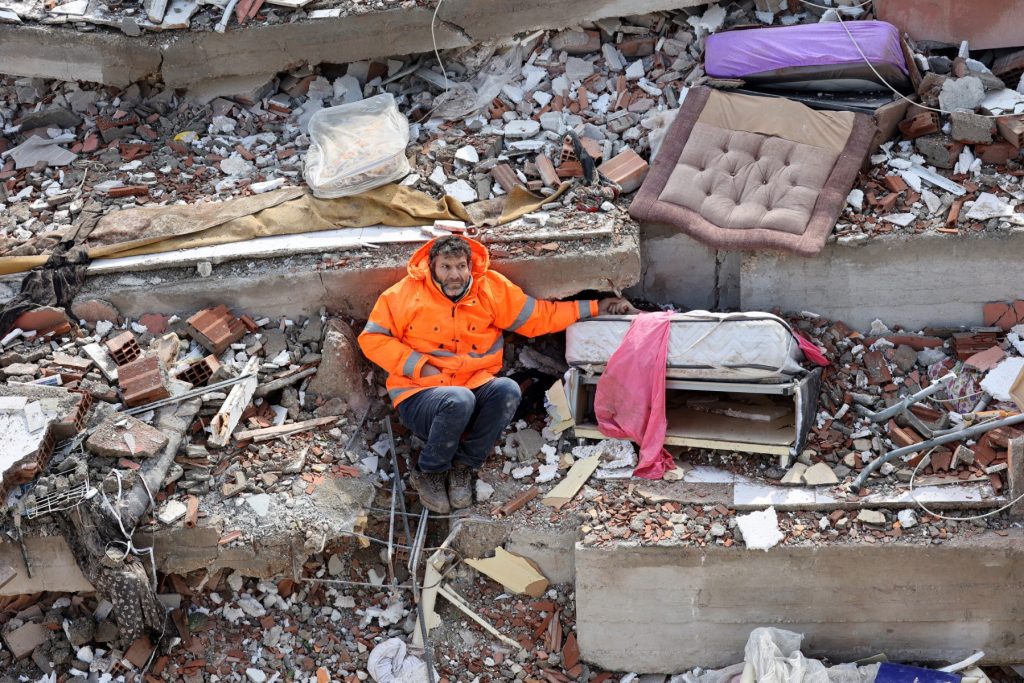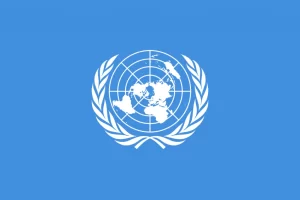Heartrending scenes of a newborn plucked alive from the rubble and a broken father clutching his dead daughter’s hand have laid bare the human cost of violent earthquakes in Syria and Turkey that by Wednesday had claimed about 9,000 lives.
For two days and nights since the 7.8 magnitude quake an impromptu army of rescuers have worked in freezing temperatures to find those still entombed among ruins that pockmark several cities either side of the border.
Officially, the death toll from the disaster now stands at 8,700. But that could yet double if the worst fears of experts are realised.
The World Health Organisation chief Tedros Adhanom Ghebreyesus warned that time is running out for the thousands injured and those still feared trapped.
For Mesut Hancer — a resident of Turkish city Kahramanmaras, near the epicentre — it is already too late.
He sat on the freezing rubble, too grief-stricken to speak, refusing to let go of his 15-year-old daughter Irmak’s hand as her body lay lifeless among the slabs of concrete and strands of twisted rebar.
– ‘Children are freezing’ –
Even for survivors, the future seems bleak.
Many have taken refuge from relentless aftershocks, cold rain and snow in mosques, schools and even bus shelters — burning debris to stay alive.
Frustration is growing that help has been slow to arrive.
“I can’t get my brother back from the ruins. I can’t get my nephew back. Look around here. There is no state official here, for God’s sake,” said Ali Sagiroglu in Kahramanmaras.
“For two days we haven’t seen the state around here… Children are freezing from the cold,” he said.
In nearby Gaziantep, shops are closed, there is no heat because gas lines have been cut to avoid explosions, and finding petrol is tough.
Sixty-one-year-old resident Celal Deniz said the police had to intervene when impatient crowds waiting for rescue teams “revolted”.
About 100 others wrapped in blankets slept in the lounge of an airport terminal normally used to welcome Turkish politicians and celebrities.
“We saw the buildings collapse so we know we are lucky to be alive,” said Zahide Sutcu, who went to the airport with her two small children.
“But now our lives have so much uncertainty. How will I look after these children?”
Across the border in northern Syria, a decade of civil war and Syrian-Russian aerial bombardment had already destroyed hospitals, collapsed the economy and prompted electricity, fuel and water shortages.
In the rebel-controlled town of Jindayris, even the joy of rescuing a newborn baby was tainted with sadness.
She was still tethered to her mother who was killed in the disaster.
“We heard a voice while we were digging,” Khalil al-Suwadi, a relative, told AFP.
“We cleared the dust and found the baby with the umbilical cord (intact) so we cut it and my cousin took her to hospital.”
The infant faces a difficult future as the sole survivor among her immediate family. The rest were buried together in a mass grave on Tuesday.
– International response –
Dozens of nations including the United States, China and the Gulf States have pledged to help, and search teams as well as relief supplies have begun to arrive by air.
A winter storm has compounded the misery by rendering many roads — some of them damaged by the quake — almost impassable, resulting in traffic jams that stretch for kilometres in some regions.
Turkish President Recep Tayyip Erdogan has declared a three-month state of emergency in 10 southeastern provinces.
The World Health Organization has warned that up to 23 million people could be affected by the massive earthquake and urged nations to rush help to the disaster zone.





